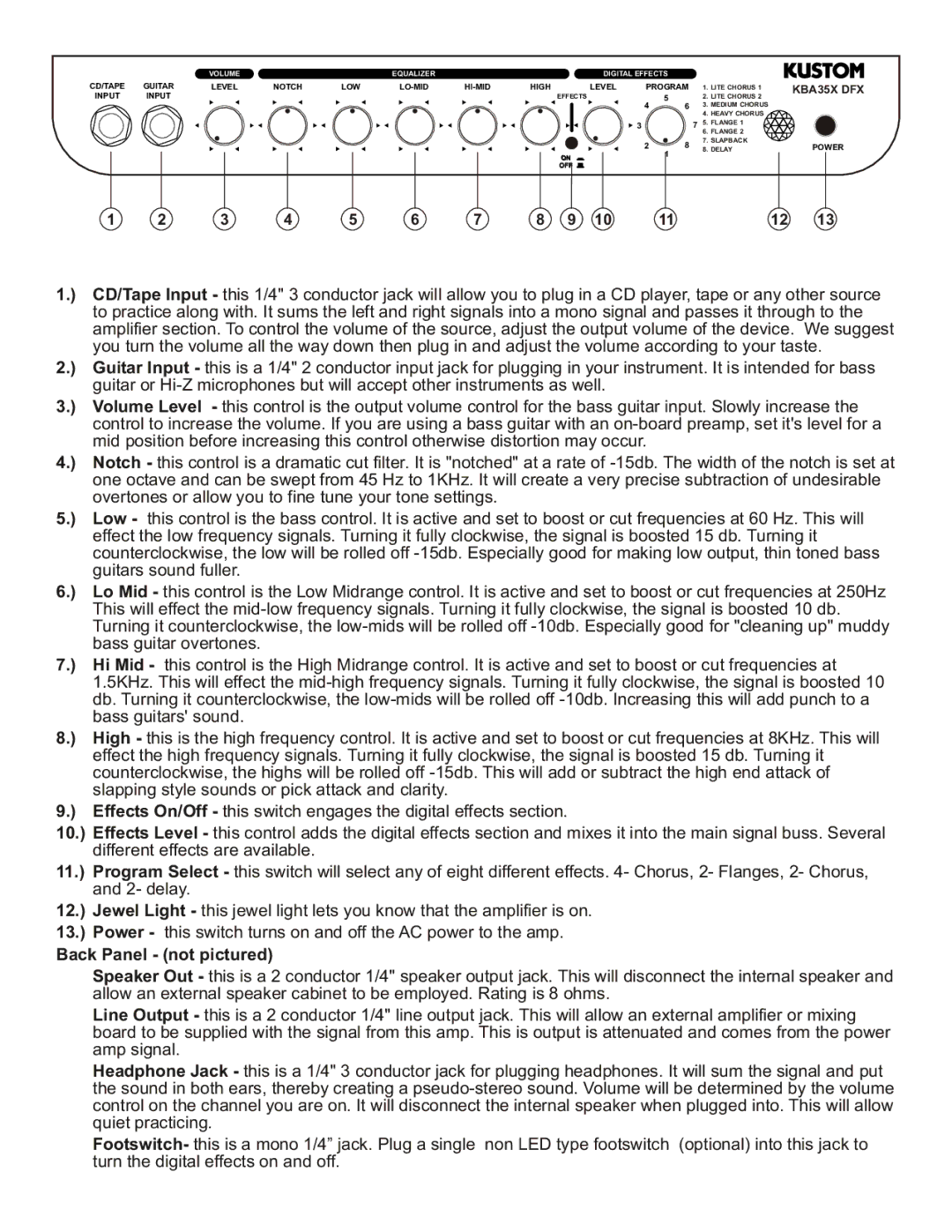KBA35XDFX specifications
The Kustom KBA35XDFX is a versatile and powerful amplifier that caters primarily to guitarists seeking a reliable and feature-rich option for practice, rehearsal, or live performance settings. This lightweight, portable amp is designed to deliver impressive sound quality and is packed with numerous features that enhance its functionality.One of the standout characteristics of the KBA35XDFX is its 35-watt power output, which provides ample volume for small to medium-sized venues. The amp is equipped with a 10-inch speaker, ensuring deep bass response and clear highs that allow musicians to showcase the intricate details of their playing. The speaker is designed to handle a wide range of frequencies, making it suitable for various musical styles, from rock to jazz and everything in between.
The KBA35XDFX features a multi-channel design, offering both clean and overdrive channels. This allows players to easily switch between pristine tones and gritty, distorted sounds with just the press of a footswitch. Additionally, the built-in digital effects processor provides a variety of effects including reverb, delay, chorus, and more, enabling players to further customize their sound without the need for external pedals.
Portability is another key feature of the KBA35XDFX. Weighing in at just under 30 pounds, this amplifier can easily be transported to gigs or rehearsals. The durable construction ensures longevity, while the compact design allows it to fit comfortably in smaller spaces, making it an ideal choice for musicians who are always on the go.
Connectivity options are abundant, with an auxiliary input for jamming along with backing tracks, as well as a headphone output for silent practice. Furthermore, the KBA35XDFX includes a direct output, making it easy to connect to a sound system or recording equipment. This feature is particularly valuable for live performers and recording artists.
In summary, the Kustom KBA35XDFX stands out as a remarkable amplifier that combines power, portability, and versatility. With its robust sound, extensive effects options, and practical connectivity, it is a fantastic choice for guitarists of all levels looking to elevate their playing experience. Whether jamming at home, rehearsing with a band, or performing on stage, the KBA35XDFX is designed to meet the diverse needs of today’s musicians.

